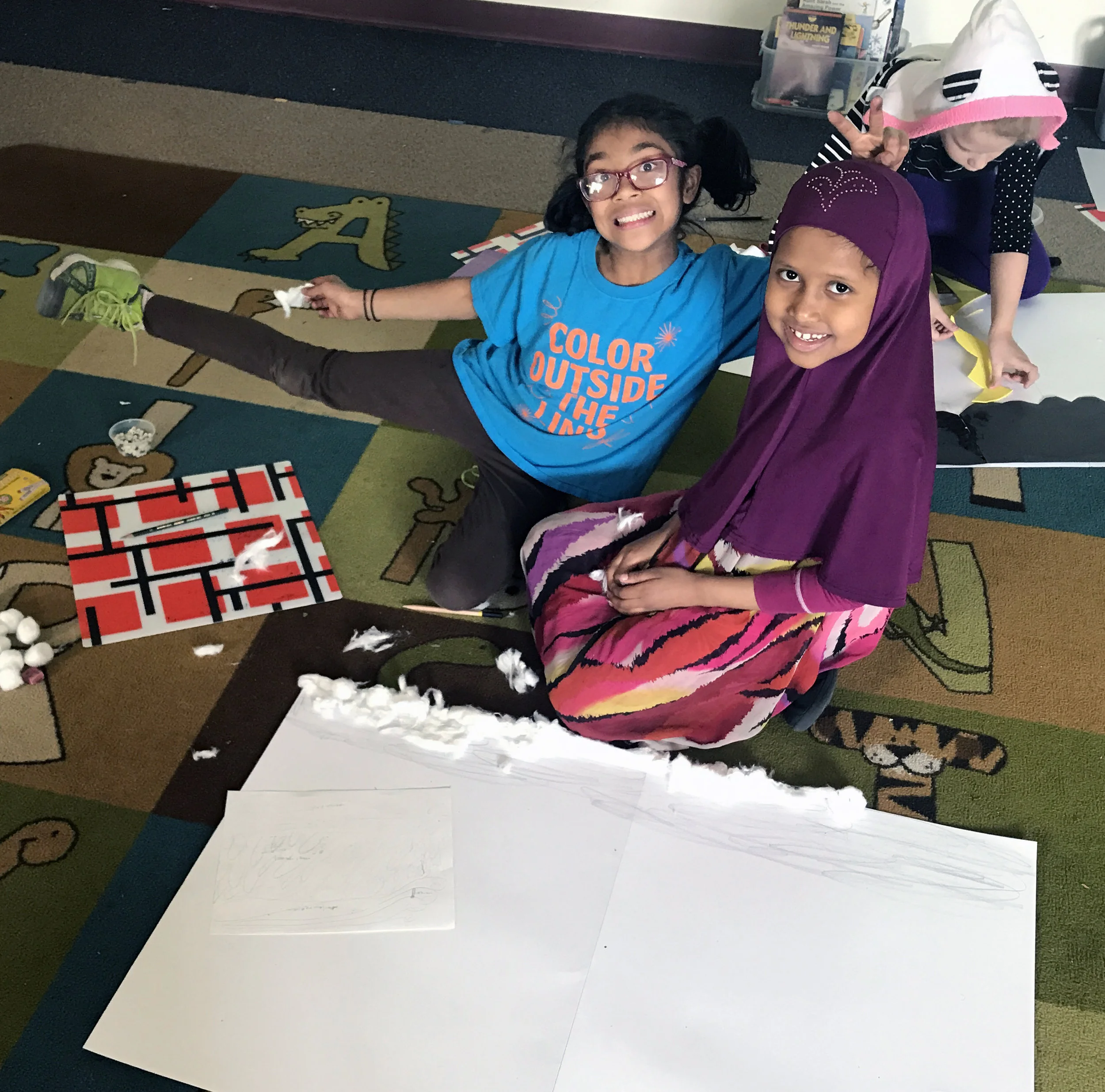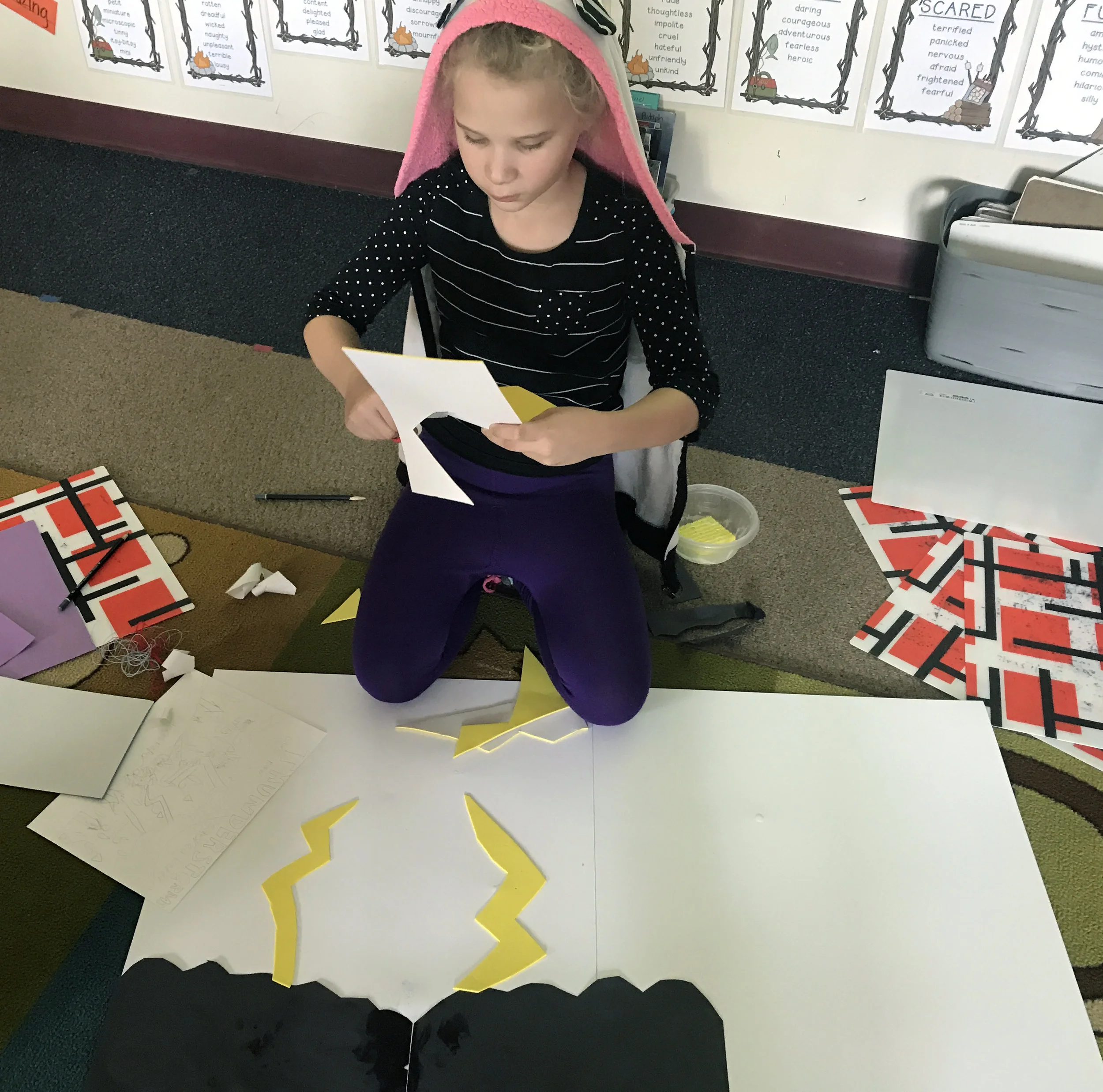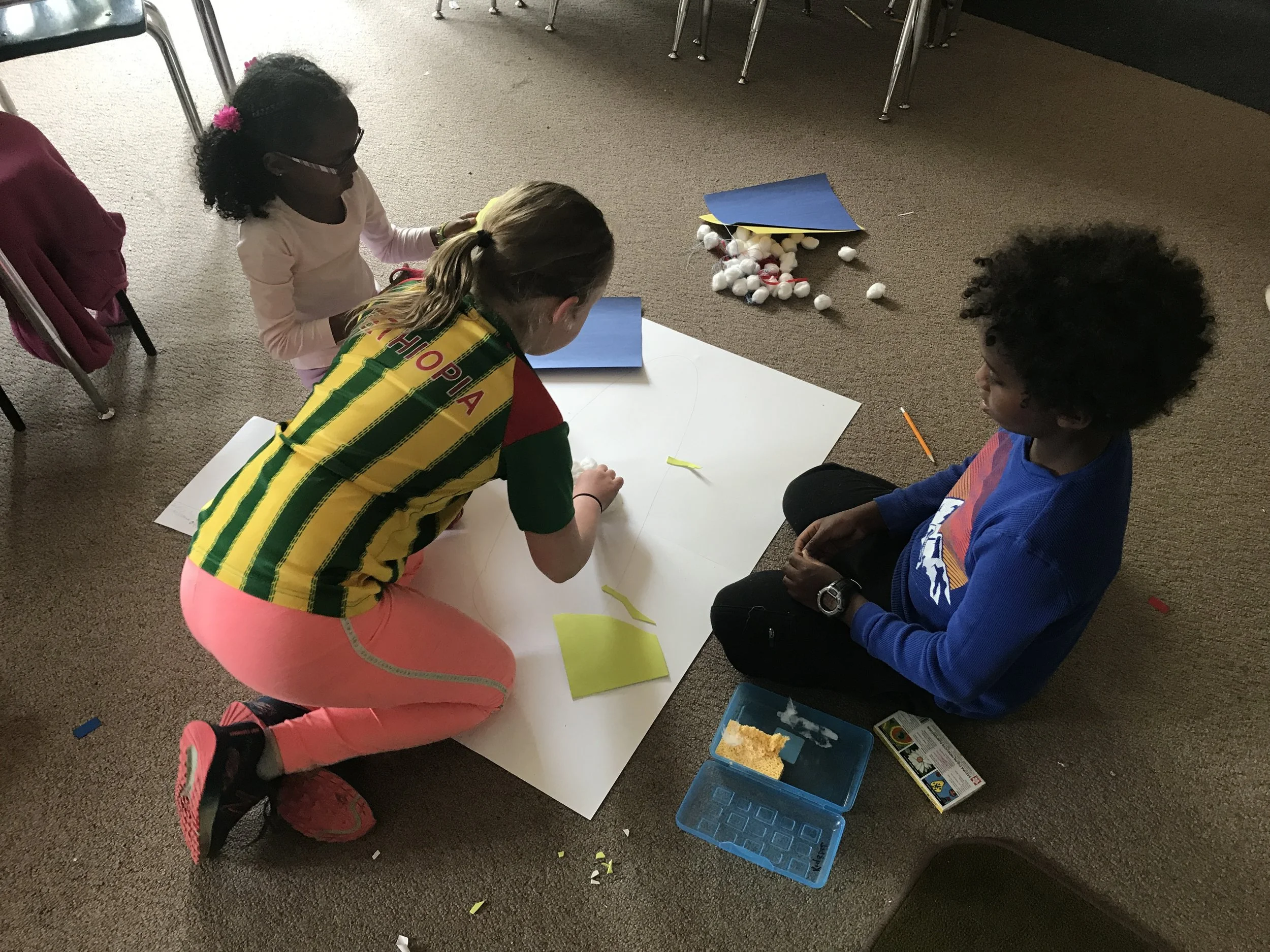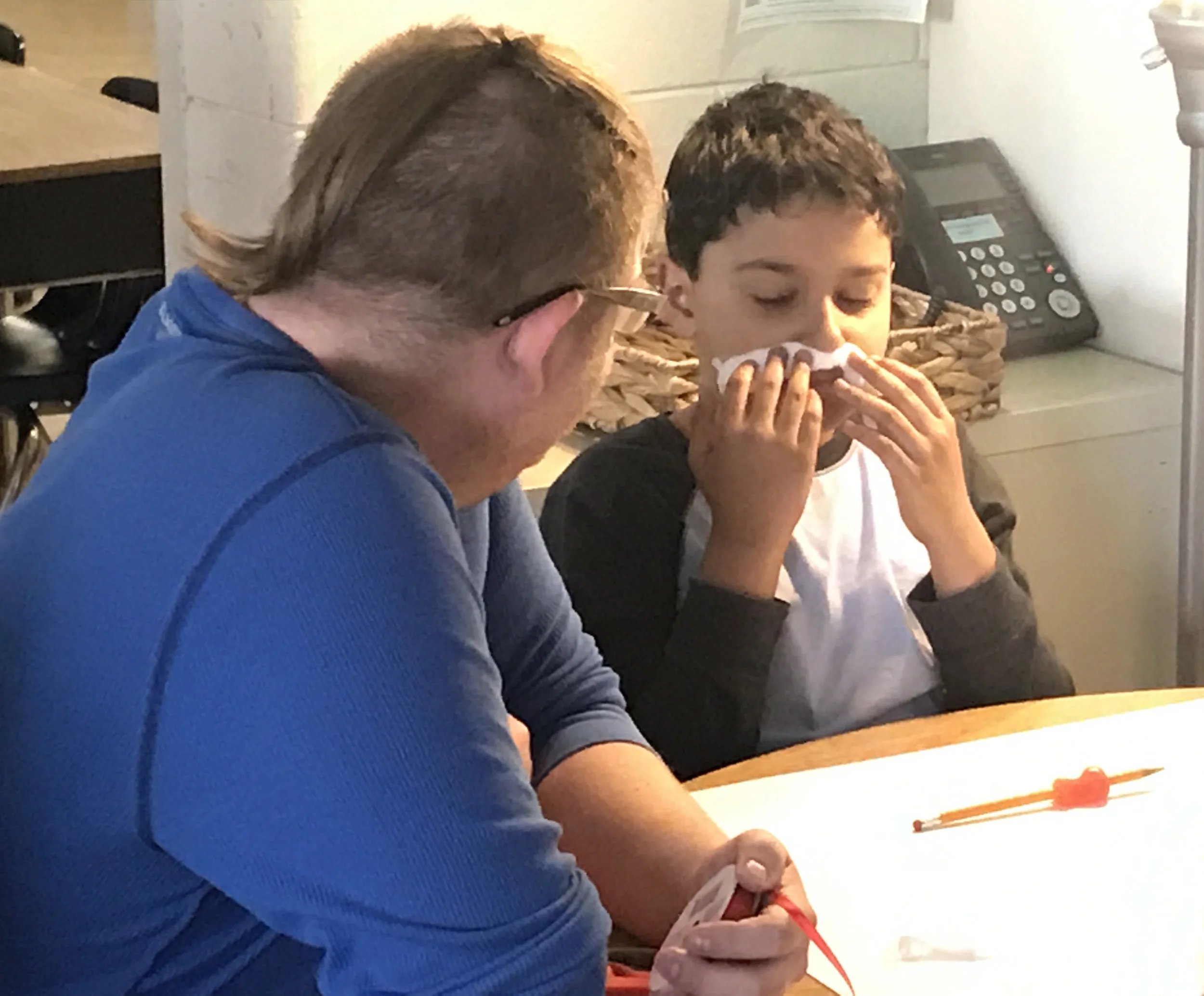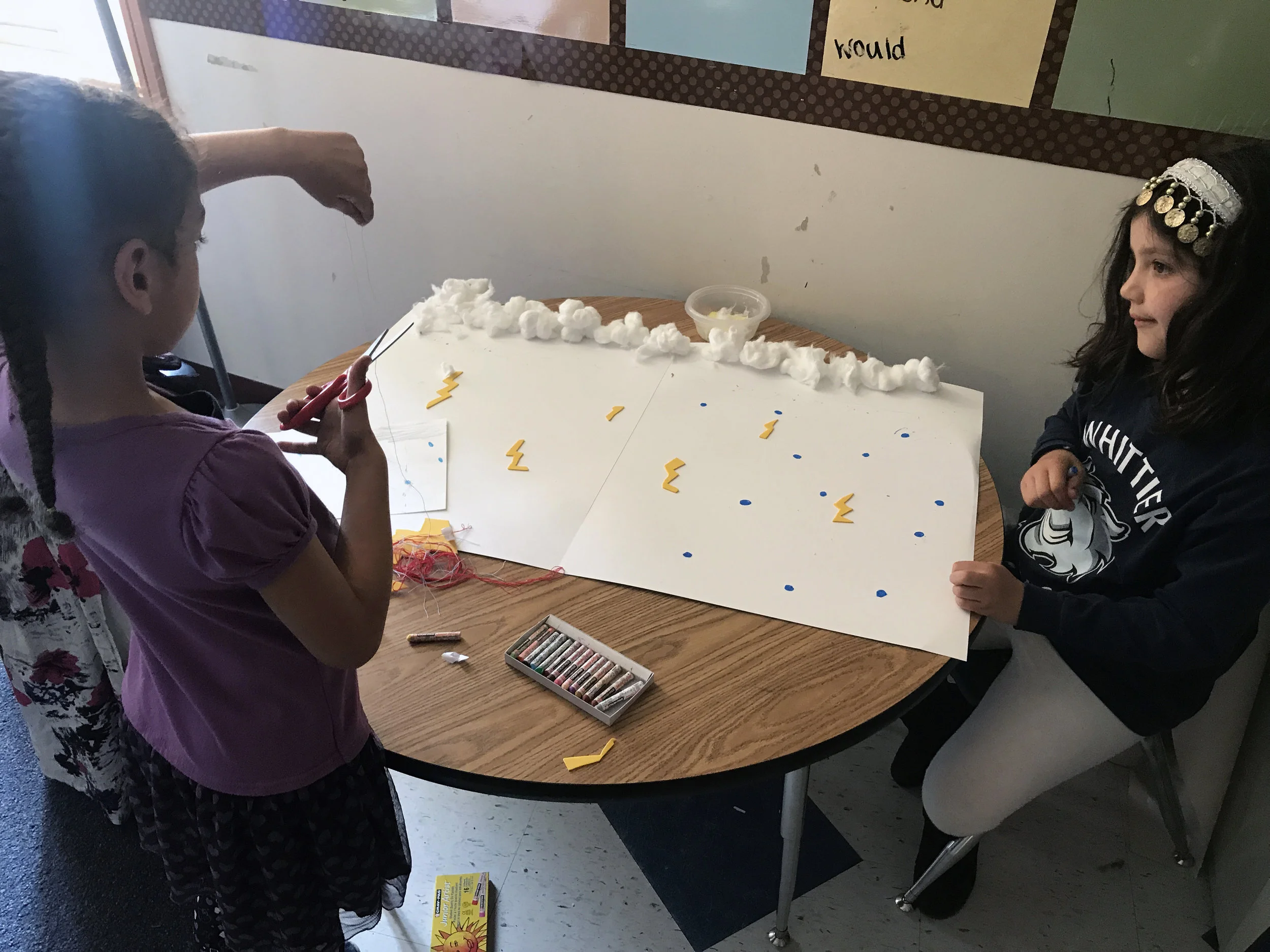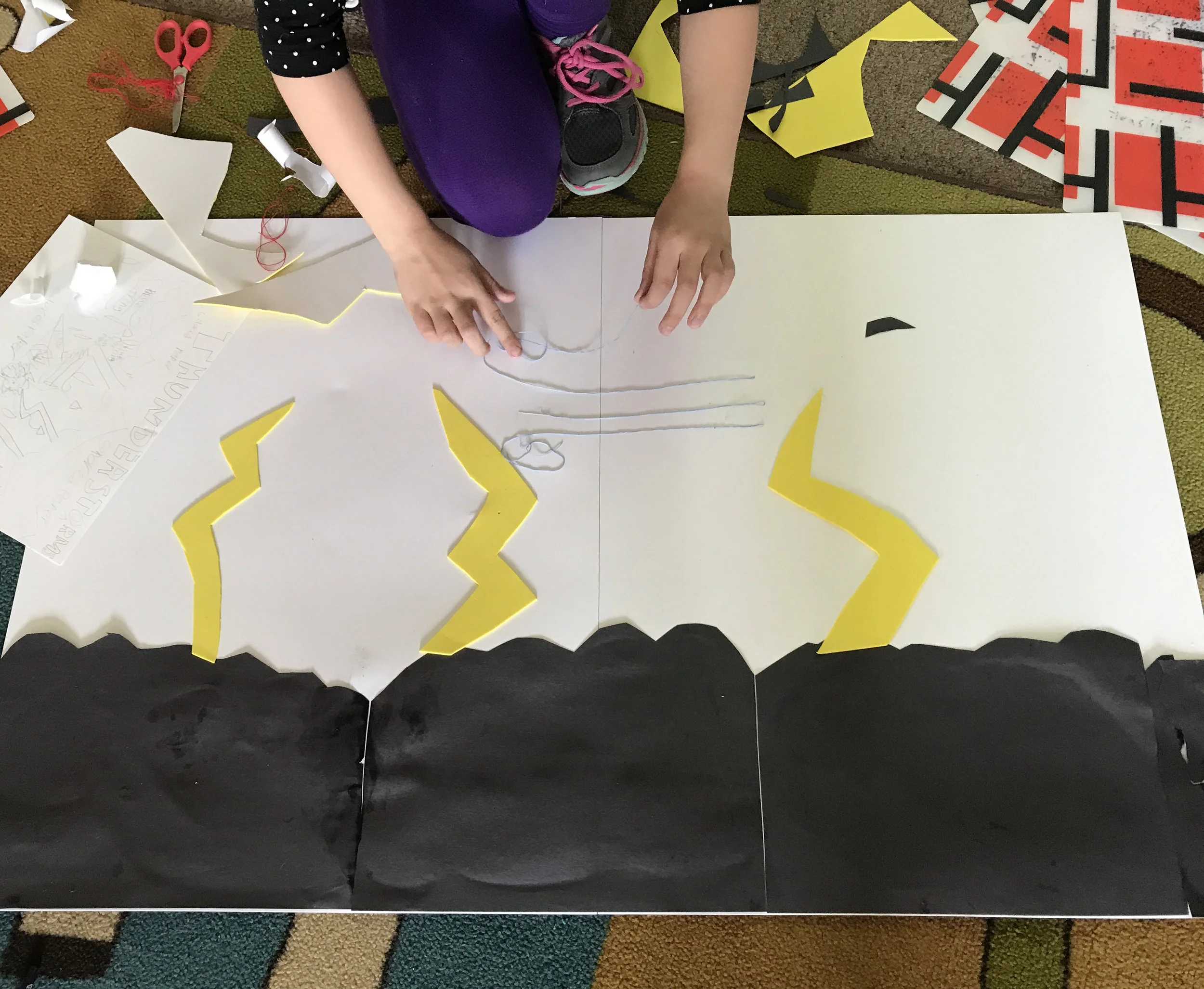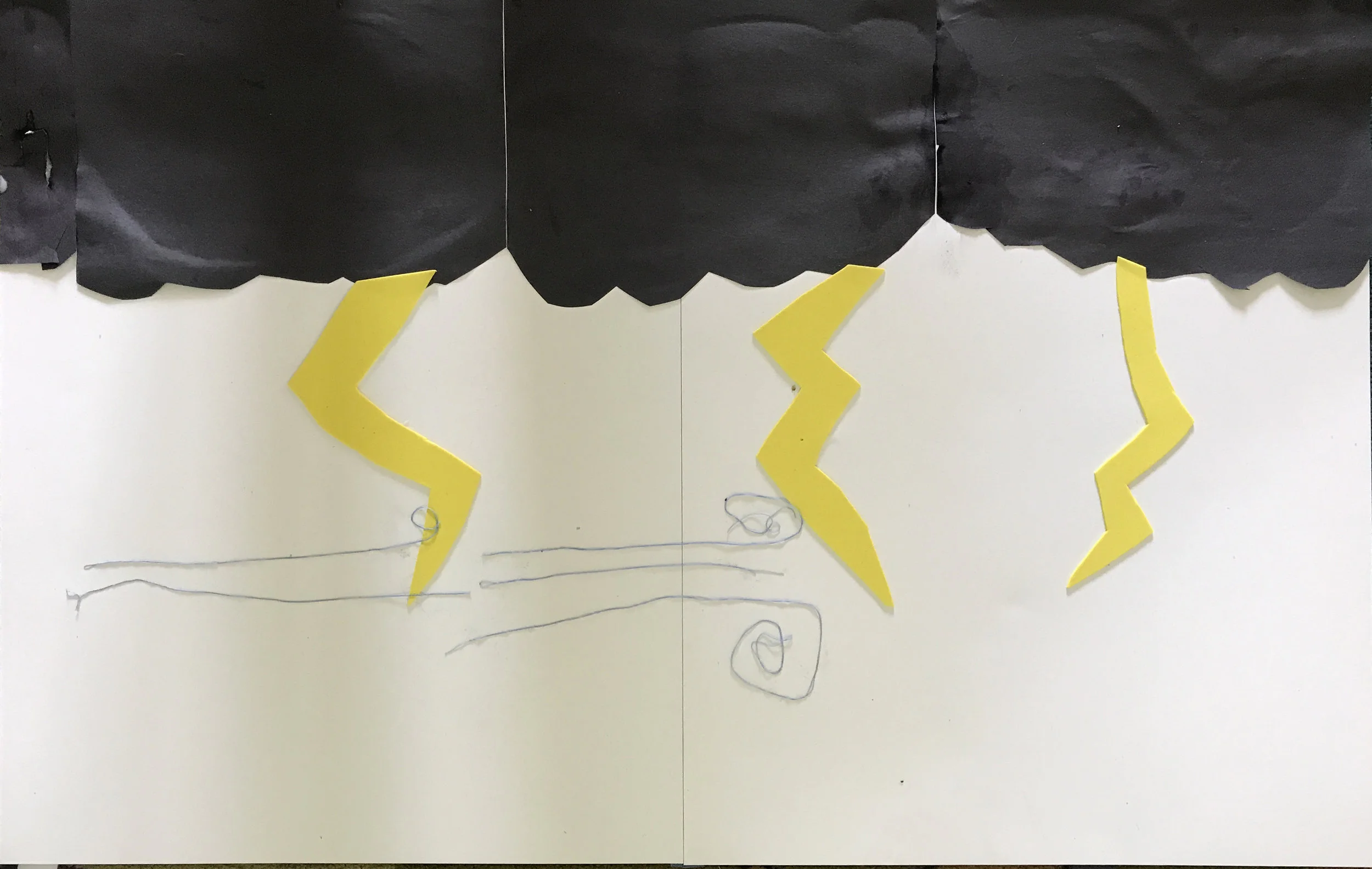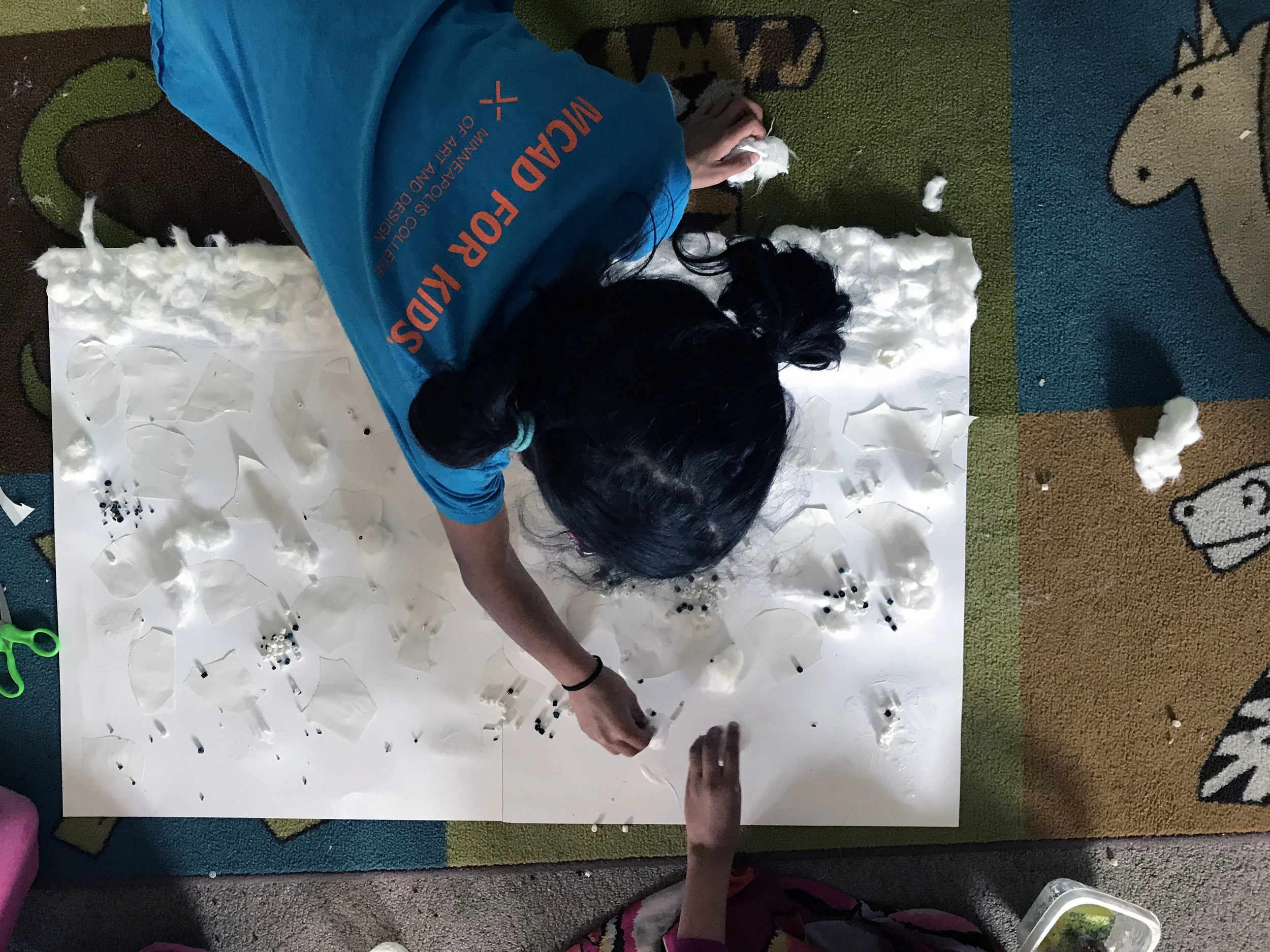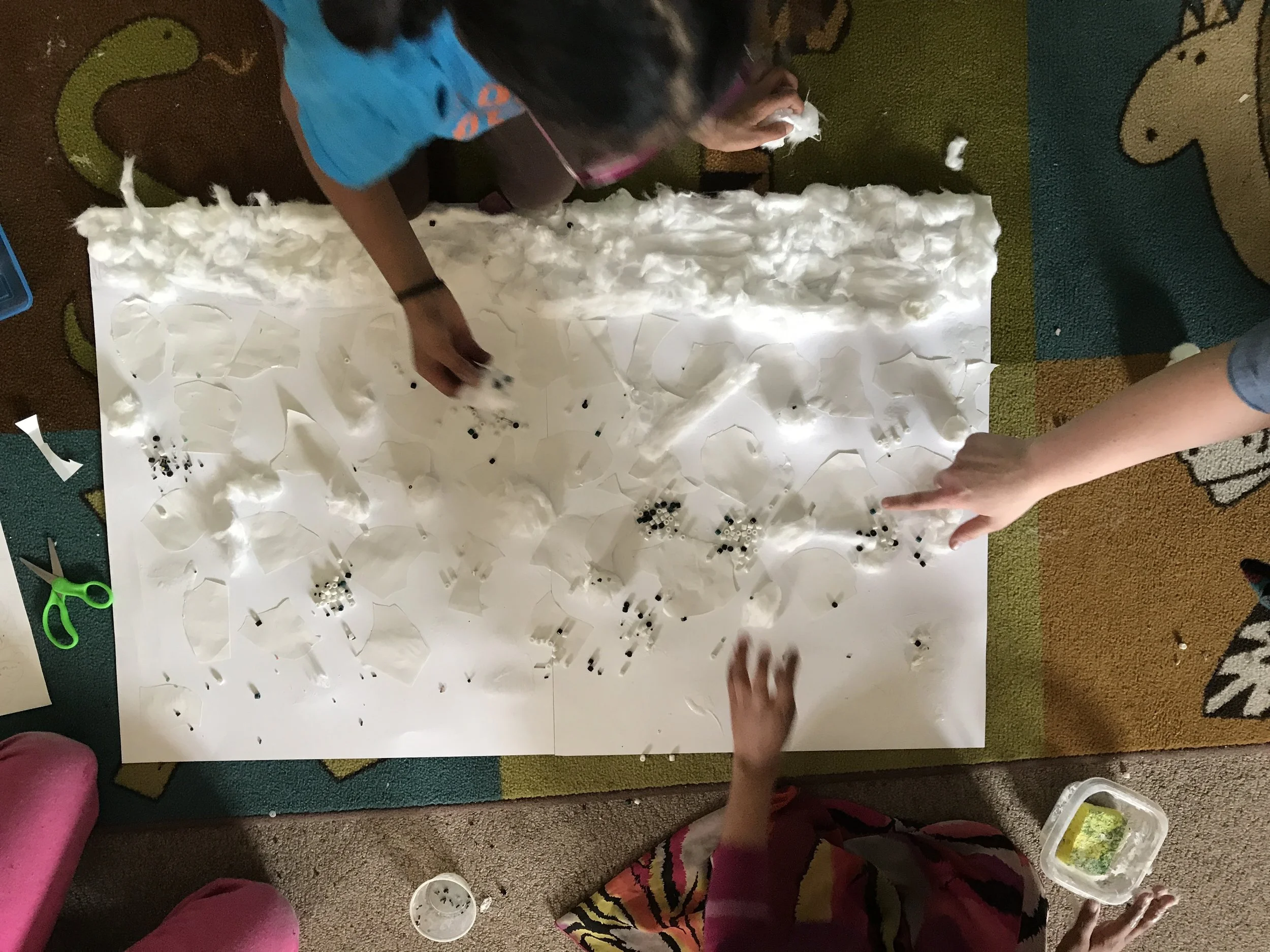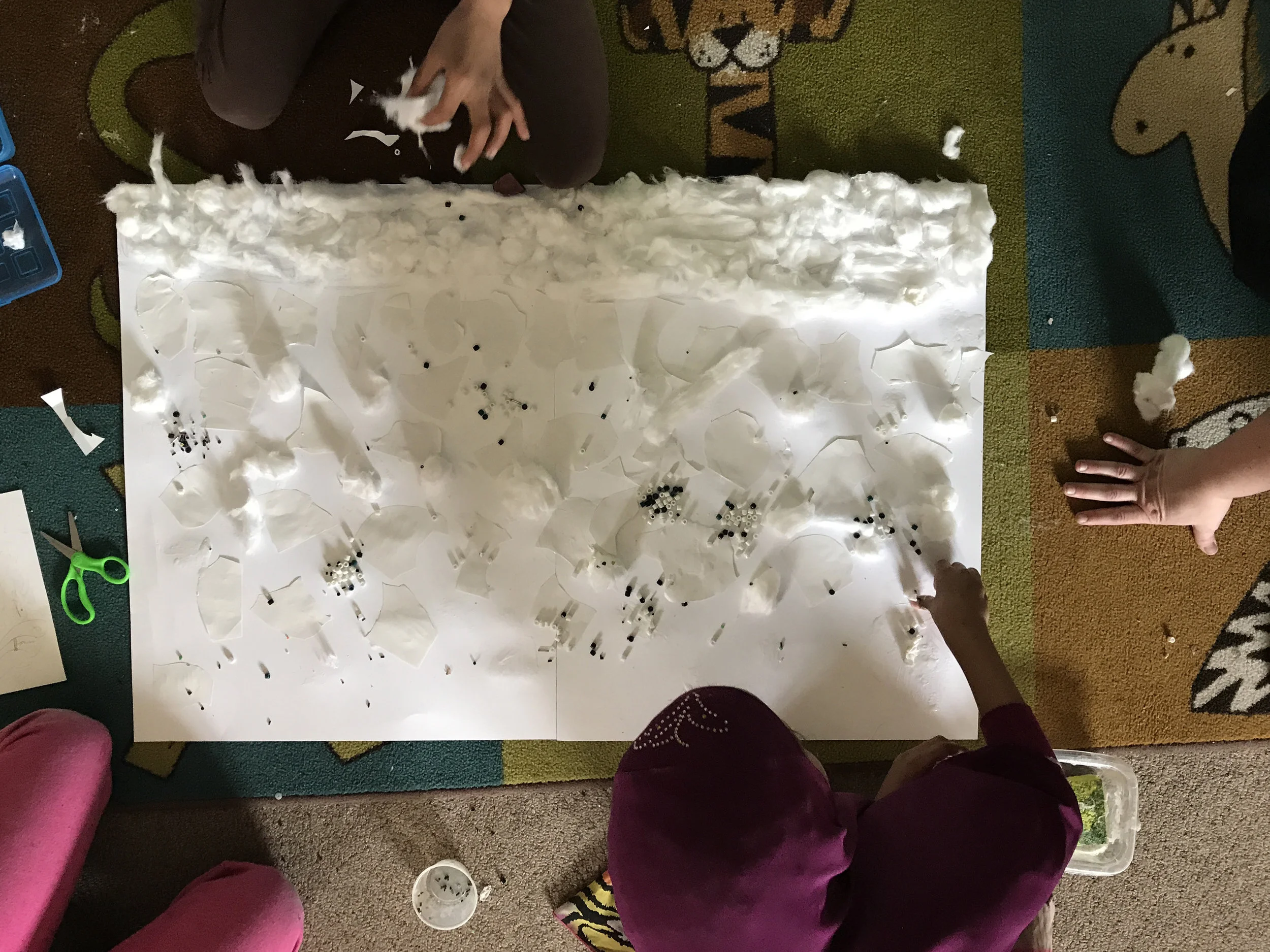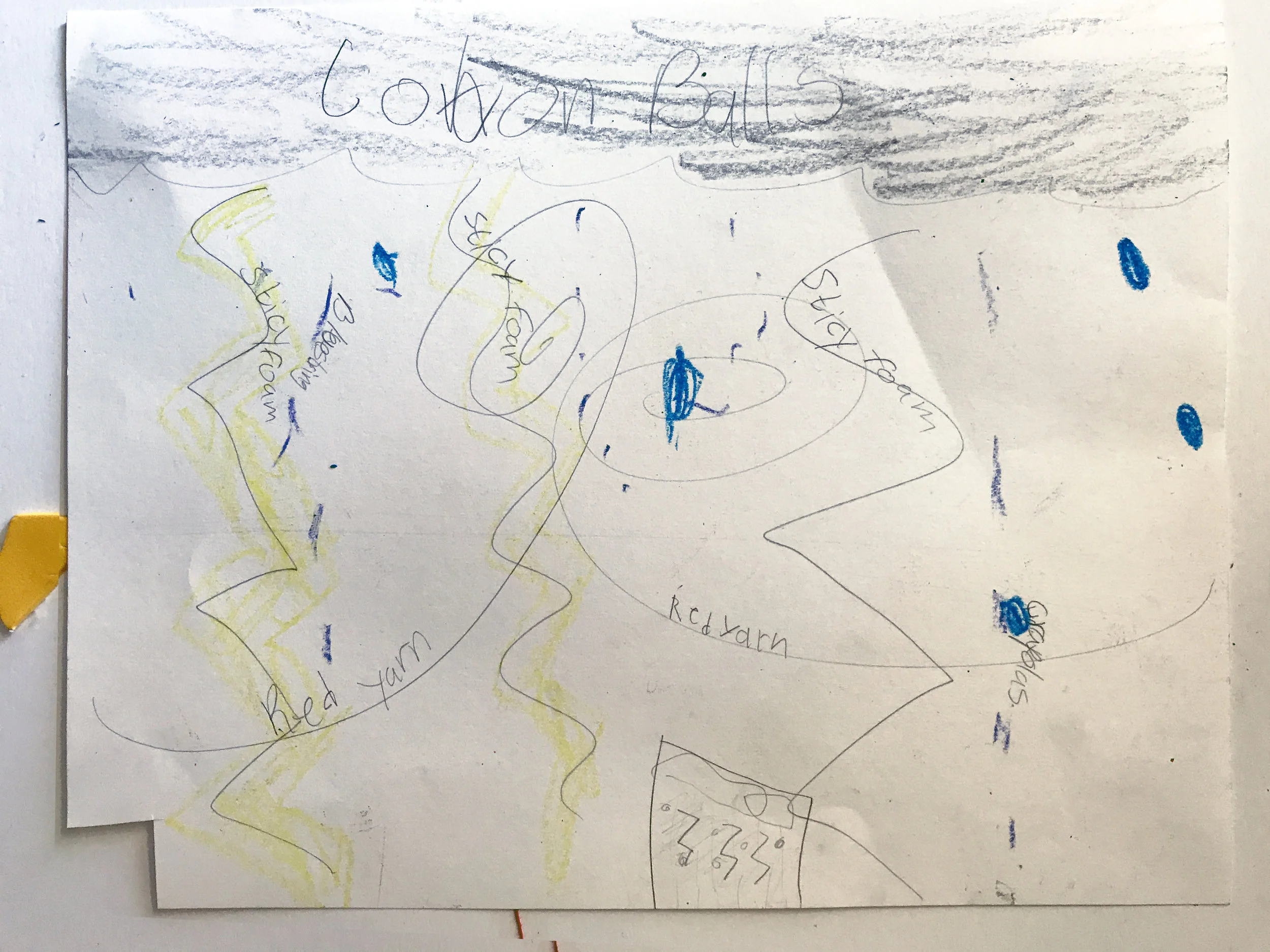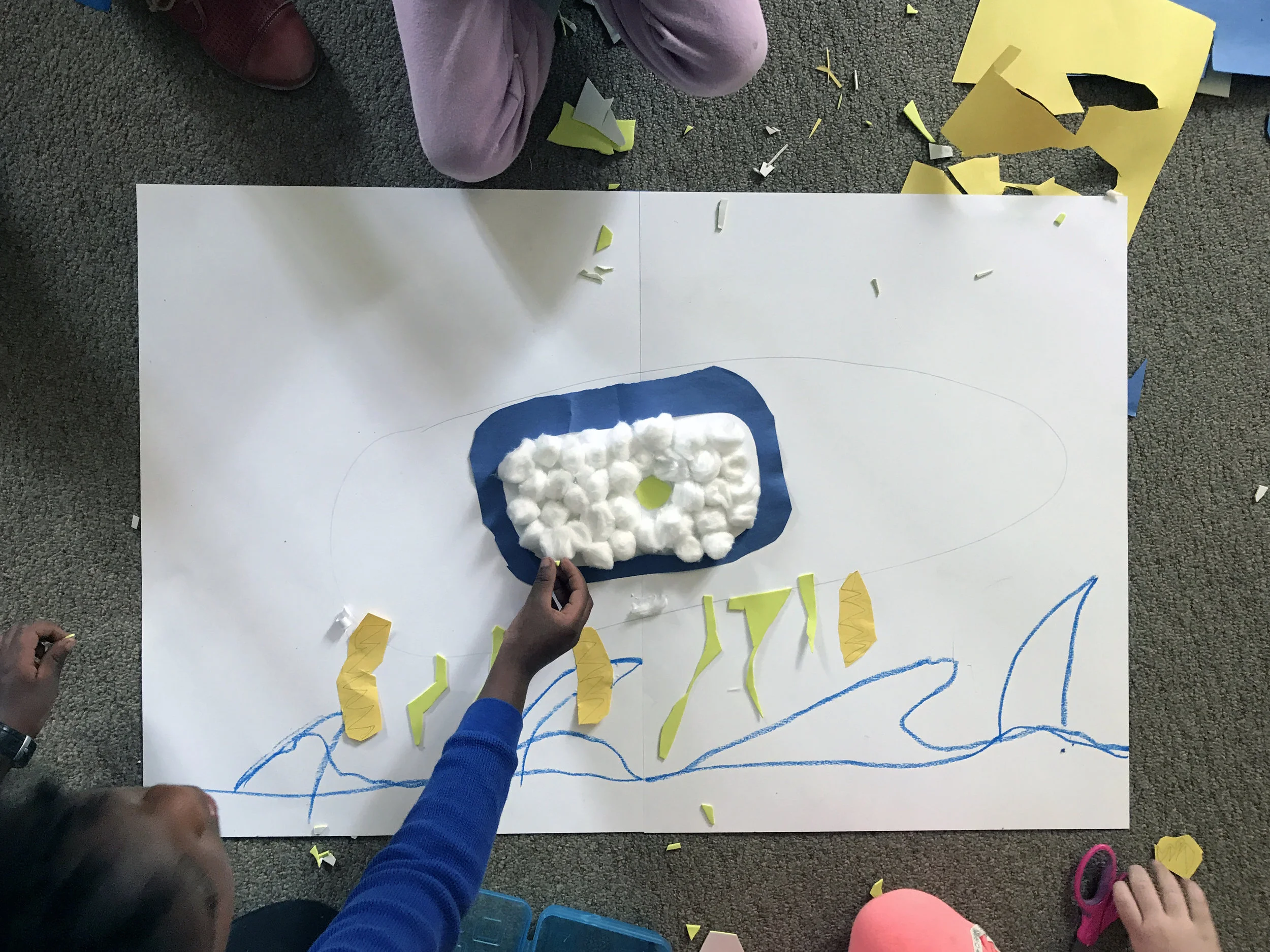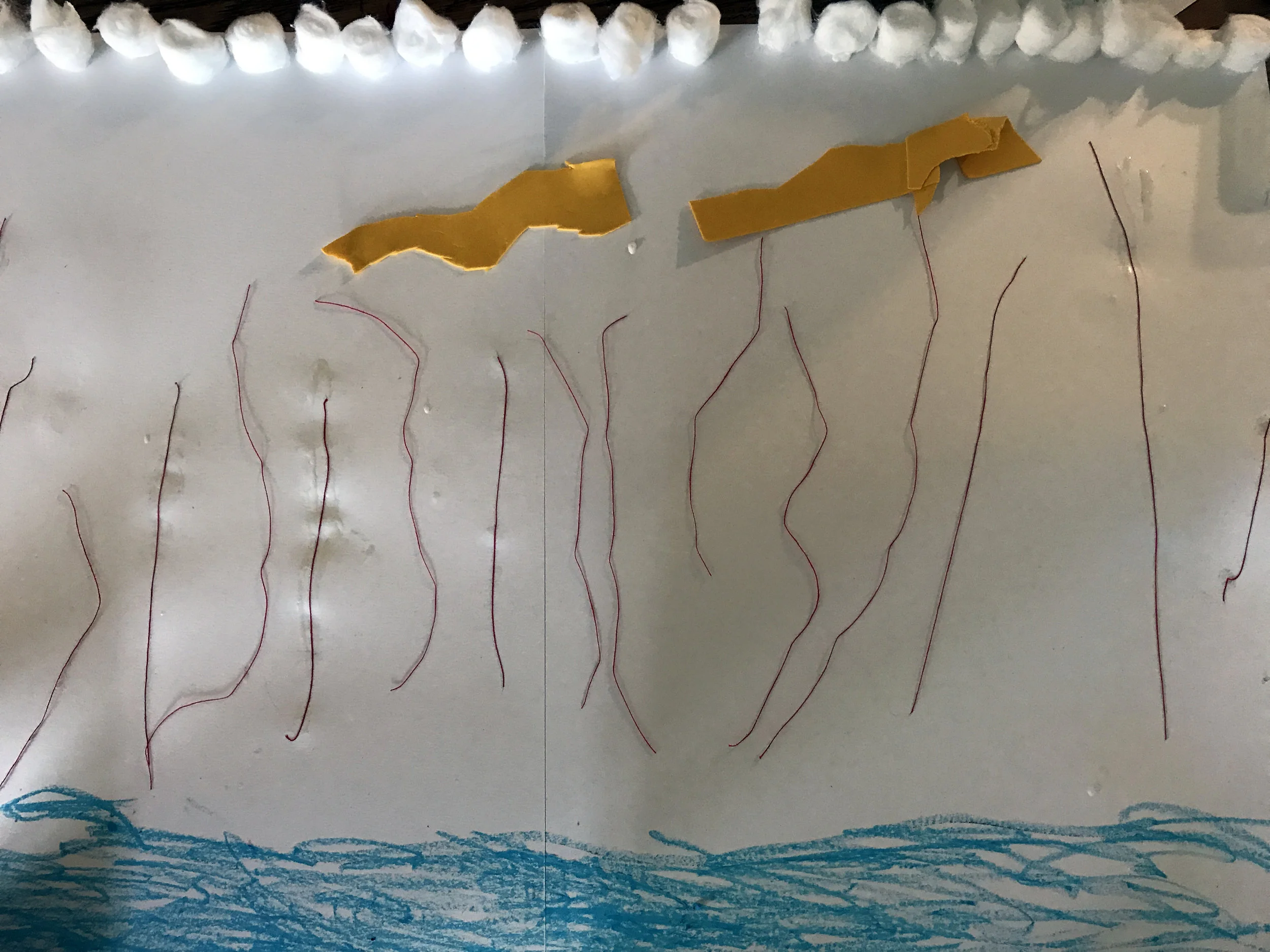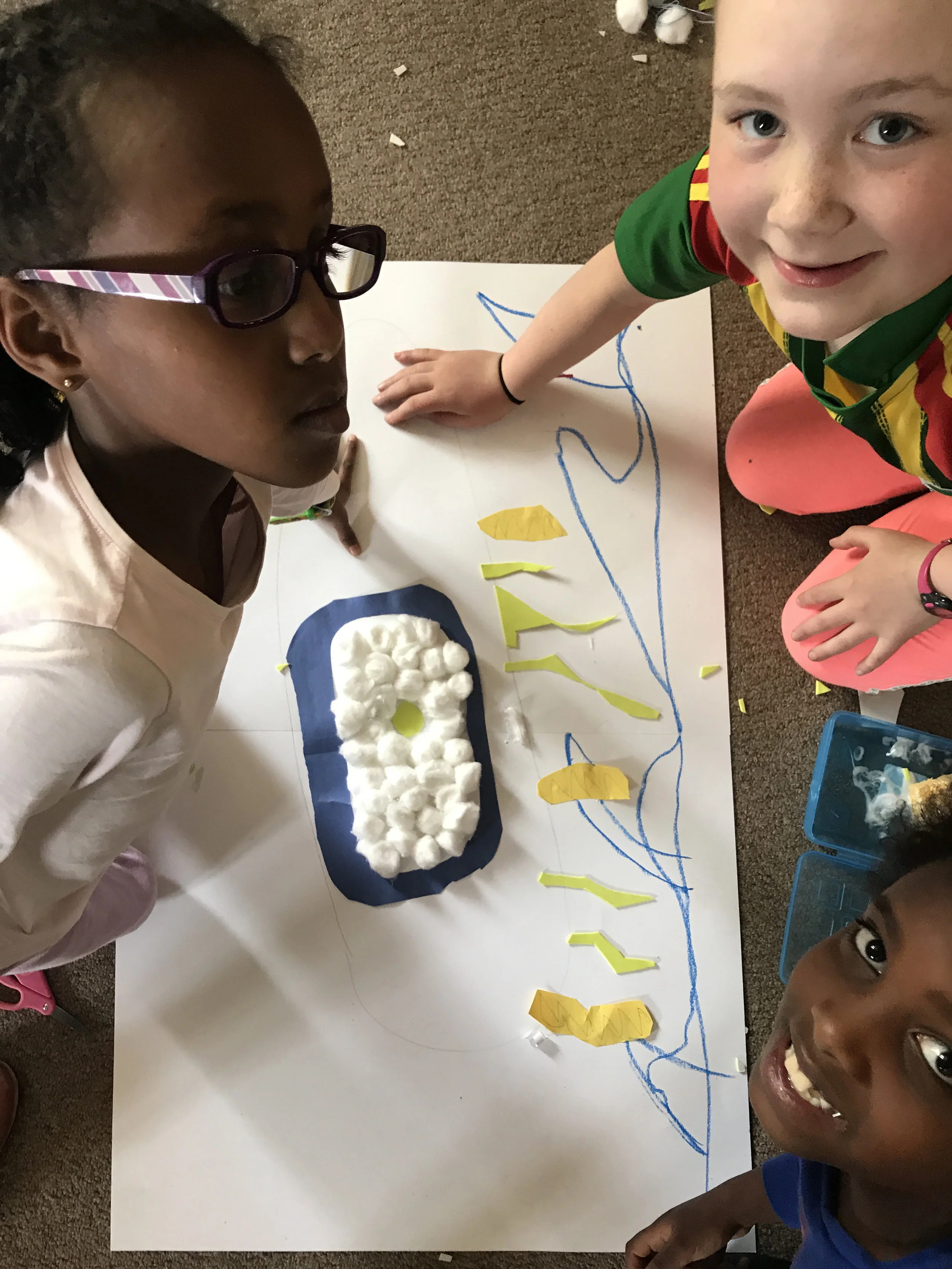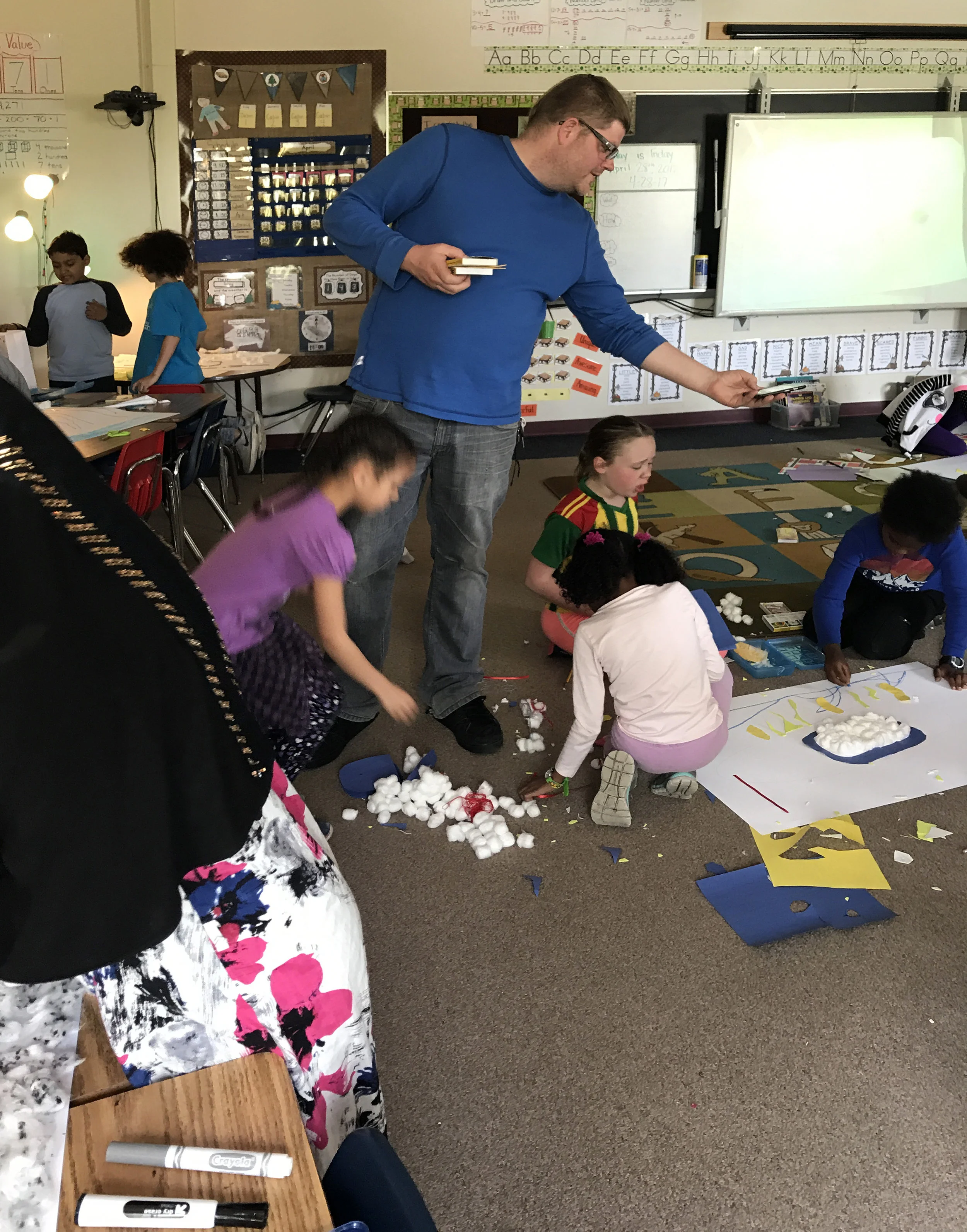Name of Project: Meteorologist Weather Map
Grade Level or Age of Participant: 2nd Grade
School, Teacher and Classroom: Whittier International School, Ms. Rudolf
MCAD Teaching Artist: Daniel Ploof
Number of Students: 27
Length of Project: 2-hours
Visual Arts Content or Standards
K-3, Artistic Foundations, 1. Demonstrate knowledge of the foundations of the arts area. 2. Identify the elements of visual art including.
Artistic Process: Create or Make, 1. Create or make in a variety of contexts in the arts area using the artistic foundations. 2. Create original two- and three- dimensional artworks to express ideas, experiences or stories.
Curricular Link / Standards
Earth Science 1. Interdependence within the Earth system and 2. Weather can be described in measurable quantities and changes from day to day and with the seasons. 2. Measure, record and describe weather conditions using common tools. For example: Temperature, precipitation, sunrise/sunset, and wind speed/direction.
Overview of Project
Students work in teams of 2-3 to create background boards for a videotaped weather report describing a type of severe weather they have learned about in science. The background will depict the ingredients of this storm and some of the effects it has on living and nonliving things. (Thunderstorms, severe rain storm with hail and strong winds, tornados, hurricanes, ice storms)
“Big Ideas”/ Essential QUESTION(s)
The students will have to consider the best way to graphically depict these storm ingredients and effects in a way that is easy for other people to understand.
Student Outcome Objectives - Students will:
1. Identify the ingredients of their chosen storm.
2. Create easy to understand imagery to depict the ingredients of the storm.
3. Discover ways to represent the storms and its ingredients in a way others can understand.
Prior Knowledge
The students will have studied hurricanes, thunderstorms, blizzards and tornados. They will know what the ingredients of these storms are and have a knowledge of the effects they have on living and nonliving things.
Examples of Artwork
Screen grabs of images and video from historic weather events and local weather channels.
Assessment
If the students get all of the ingredients and effects on their background in a way that can be understood by others, this lesson will be a success.
Materials
8.5 x 11" drawing paper
Large white or black foam core or cardboard project boards (30" x 40") and colored paper rolls for background colors
String and Yarn - white, red, blue, green, yellow, black, metallic
Cotton balls - many cotton balls
Colored construction or Canson colored papers
Markers, scissors, pencils, charcoal, glue, glue guns
Miscellaneous items - buttons, confetti, glitter ( yes, sorry glitter works here), etc
Learning Activities and Timing
1. A quick overview of the supplies options, ideas and introduction to useful gluing techniques
2. Teams brainstorming on how they could use these supplies to represent parts of storms - create a plan/drawing; identify who will procure materials.
3. Each team does a plan review with the artist and classroom teacher; teacher and artist raise questions about the graphic nature of the work and the science content. Does it read? Is it understandable, which materials are they considering, how will the items be attached? Is it an accurate depiction? Once the plan is OK'ed teams begin creating their boards.
4. Student work for 40 minutes to finish boards. Due to the size they will push tables aside and work on the floor. If using low temperature glue guns each board will need to be close to an outlet or extension cords will be needed.
5. Student take 10 minutes at the conclusion to reflect on their projects with another team and consider feedback, making changes as needed.
5. Clean up and sharing. Each group presents their project to class. Class identifies strengths and questions.
6. Student teams create text for the videotaping of the weather report and practice performance. Video taping takes place the following class period.


